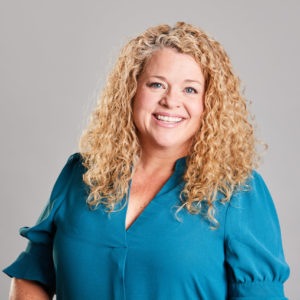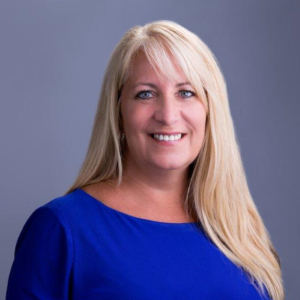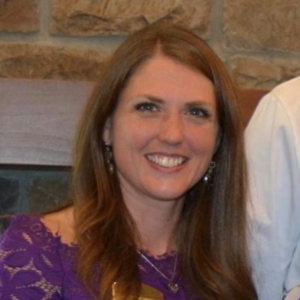The volunteer perspective on making memory masterpieces
Helping others can be mutually beneficial, especially when it involves the creative joy of art. Student volunteer Ashley Martin shared her experiences with seniors in the Opening Minds Through Art (OMA) program at the 2016 LeadingAge annual meeting and expo. This is her story.
I was a sophomore and math and French double major with a computer science minor at Miami University in Oxford, Ohio. I was on the dance team and in a math fraternity.
I found out about OMA through the University Honors Program. I didn’t have any ties to caregiving but loved older adults. I didn’t know what to expect but decided to volunteer anyway.
I spent a few weeks in the classroom learning from OMA founder Elizabeth ‘Like’ Lokon how to appropriately and effectively communicate with people with dementia.
My grandpa had Alzheimer’s disease. I felt very uncomfortable, to be completely honest, when I went to visit him in the nursing home. He passed away my senior year of high school.
I was extremely nervous. I didn’t know what to expect with OMA.
I timidly walked into my partner Tony’s room and introduced myself. Tony asked if we were going to art. I told him we were. He asked me to help him get into his wheelchair. As I pushed him down the hall, he asked me all about my life. Then, throughout the art program, he told me so many amazing things about his life, including that he had been to France.
Tony was a bit of a ladies’ man. He’d say things like ‘I’m going to marry you.’ It took maybe two sessions, but then I started to poke back at him. I’d say ‘Tony, you have to buy me flowers first, come on.’ He’d tell me they were in his car.
We developed a great relationship. Seeing him was my favorite part of the week. He would light up when I walked in and then I would light up. It was a contagious reaction.
There was an art show at the end of the semester. Like was talking, and we were in the front. There was music playing in the background of a slideshow. Tony was slow dancing with me in front of hundreds of people. I was afraid I was going to get in trouble. But he was just all into it. There’s a picture on the front page of the local newspaper with him kissing my hand.
I compare that with my experience with my grandpa. I didn’t know how to communicate. I would just sit in the room with him. OMA has taught me so much in how to form these relationships and just be a better person.
Tony still has a lot of abilities, but the same thing would have happened even if he hadn’t been able to tell me stories. I’ve seen it. There have been people who can’t communicate at all, but they go from being very timid to very open through touch and smiles and the light in their eyes.
I volunteered for six semesters with OMA and became a student leader. I had a lot of accomplishments in college but OMA made me redefine what success means. Through all those accomplishments, I didn’t feel the wholeness or the sense of purpose like I did leaving an OMA session. It was going in and interacting with people every day and seeing the little things of how you improved their well-being that would fill my whole heart.
At my final art show, a man came up to me and said what we were doing with OMA was great. He said, ‘Mom has declined so much. She’s so hard to be around. It tears me apart to be with her because I see how far she’s progressing with the disease.’ It’s nothing against him because I felt this way with my grandpa. But to me, Nina doesn’t look like someone who’s had a stroke and is now nonverbal. She’s Nina. I’ve never looked at Ray as someone with dementia who has issues communicating. He’s just Ray.
I told the man that spending time with his mom is the best part of my week, and she makes me so happy. I think it’s really special that OMA is not only affecting the volunteers and the artist, but also helps him see his own mom in a new light that he wouldn’t have been able to see before.
I think the artists benefit from OMA, too, because it gives them a new sense of identity. Caregivers may only see them for their abilities or their decline. But I saw them as the people, and they realize that. They’re not looking at me and seeing what they can no longer do or communicate. They can be themselves now. I think that’s extremely powerful.
Read more about the OMA program at Memory Masterpieces.

Nicole was Senior Editor at I Advance Senior Care and Long Term Living Magazine 2015-2017. She has a Journalism degree from Kent State University and is finalizing a master’s degree in Information Architecture and Management. She has extensive studies in the digital user experience and in branding online media. She has worked as an editor and writer for various B2B publications, including Business Finance.
Related Articles
Topics: Activities , Alzheimer's/Dementia , Articles











